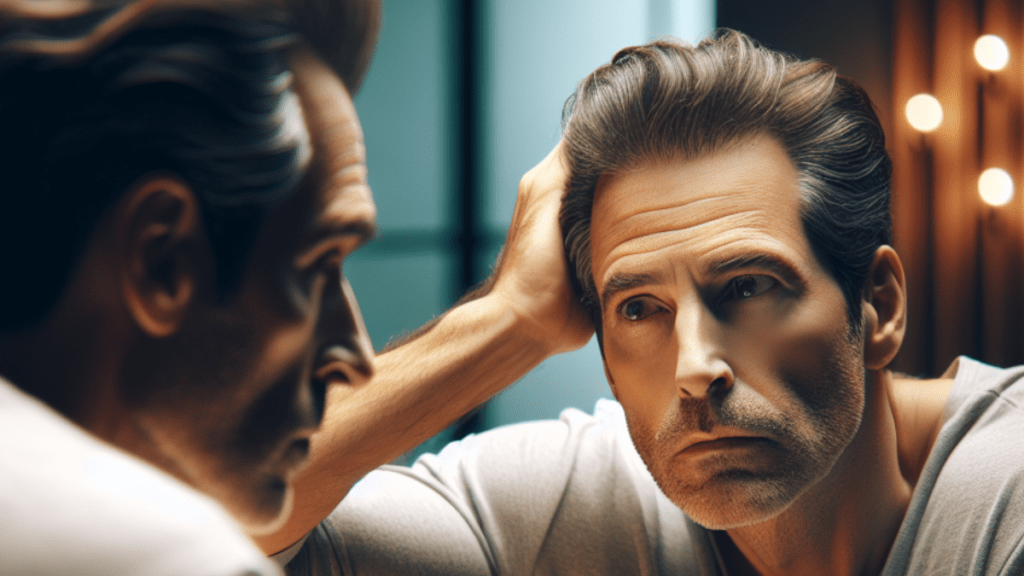The Untold Story Behind Lyle’s Hair Loss and How You Can Prevent It
Introduction
Loss of hair is a prevalent problem that affects millions of men around the world. However, when it happens to someone you’ve known or an important person such as Lyle the loss is a shocker. People begin to think, “Why did Lyle lose his hair?” and what can they do if they’re in similar issues. In this complete guide, we’ll examine the primary reasons for hair loss, the excellent way to spot early warning indications, and offer practical suggestions to benefit keep your hair’s health. Let’s explore the reasons behind hair loss and offering practical tips to rise the health of your hair.
Understanding Hair Loss
What Causes Hair Loss in Men?
The loss of hair can be caused by a variety of factors which range from lifestyle choices to genetics. The most frequent cause is androgenetic Alopecia, which is also referred to as male-pattern hair loss. It is a genetic condition that could begin at any time in the 20s. Hormonal imbalances and hormonal changes particularly those that result in the rise in dihydrotestosterone (DHT) which plays the major part in the process of hair loss and loss.
The Role of Genetics in Hair Loss
Genetics is a key factor in understanding why males lose hair more quickly than others. If your grandparents or parents lost their hair, there’s a good chance you’ll experience the same. Genetic predisposition may cause hair follicles to be more sensitive to DHT which can lead to a shorter hair-growing cycle as well as weaker, finer hair shafts with time.
Environmental Factors and Their Impact
The environment you reside in can also affect your the health of your hair. The pollution and exposure to UV rays harmful to your health and even water quality can have an impact on your hair and scalp. Cleaning and maintaining a healthy and stress-free environment could benefit to reduce certain risks.
Early Signs of Hair Loss
Recognizing the primary Symptoms
The early detection of problems is crucial to controlling the loss of hair energetically. Watch out for signs such as receding hairline, thin crowns, or excessive shed. The symptoms typically progress slowly and allow time for intervention in the event of a symptom being noticed earlier.
Seasonal Shedding Versus Permanent Hair Loss
It’s normal to lose hair on a daily basis, however, discerning between permanent and seasonal loss of hair is vital. In most cases, seasonal shedding resolves however persistent hair loss may indicate a deeper problem that needs to be addressed.
Psychological Impact of Hair Loss
Hair loss can be a major factor in your self-esteem as well as mental well-being. It is important to acknowledge your emotions and seek benefit, through therapy, support groups or talking to a health well-qualified.
Lifestyle Choices and Hair Health
Importance of a Balanced Diet
A healthy diet is vital for keeping healthy hair. Foods high of vitamins A, C, D, E zinc, iron along with omega-3 fats increase the strength of hair follicles and encourage growth. By incorporating nutritious greens, nuts and seeds and lean proteins in your diet could make an impact.
Exercise and Its Benefits
Regular physical exercise improves the flow of blood, and improves hair health. Exercise helps reduce stress levels, a reason that can lead to loss of hair. Make sure you do at minimum 30 mins of moderate activity each day to ensure your hair and body in top condition.
Stress Management Techniques
Stress-related stress is a recognized factor in hair loss disorders such as the telogen effluvium. Utilizing techniques for managing stress like yoga, meditation and breathing exercises that are deep can benefit to reduce the effects of stress on loss of hair.
Hair Care agenda for Men
Choosing the Right Products
Making the right choice of shampoo or conditioner as well as products for styling is essential. Opt for products that are free of harsh chemicals such as sulfates and parabens, which could harm the scalp and hair. Look for ingredients such as biotin, keratin and natural oils which help nourish and strengthen hair.
Proper Washing and Conditioning Techniques
The way the hair is washed and conditioned is important. Avoid hot water, as it could remove your hair’s its natural oils. Instead apply lukewarm water to your hair as you gently stroke your hair in order to improve circulation. Make sure you condition at the tips of your hair in order to avoid breaking and dryness.
Styling Tips to Minimize Damage
The excessive styling of hot tools and tightly-styled hairstyles can damage hair and cause breakage. Be cautious when using heating tools and make sure to use an anti-heat spray. Try looser hairstyles in order to ease the tension in your hair follicles.
Medical Treatments and Innovations
FDA-Approved Medications
There are a variety of FDA-approved medicines to treat hair loss. Minoxidil (Rogaine) and finasteride (Propecia) are two of the most popular choices. Minoxidil is a treatment for the skin which stimulates hair growth while finasteride is an orally administered medication that decreases DHT levels.
Hair Transplant Surgery
If you are suffering from more severe hair loss Hair transplant surgery could provide an choice. This procedure involves the transplantation of hair follicles from one area of the scalp to regions that are thinning. This procedure is permanent however it requires careful thought along with consultations with a professional.
Emerging Technologies and Research
The latest treatments for hair loss are constantly developing. Laser therapy at low levels (LLLT) as well as platelet rich plasma (PRP) treatments are showing impressive outcome for stimulating growth of hair. Being informed of new research could open more possibilities for tackling hair loss.
Natural Remedies and Alternative Therapies
Essential Oils for Hair Growth
Certain essential oils such as peppermint, rosemary as well as lavender, have been proven to boost hair growth. The oils can be combined in with carriers oils before being massaged on the scalp to increase blood flow and nourish hair follicles.
Herbal Supplements and Vitamins
Biotin and other supplements like saw palmetto and Folic acid are frequently suggested for healthy hair. These supplements can correct deficiencies that could cause loss of hair, but it’s excellent to talk with a doctor prior to taking any new supplements.
Scalp Massage Techniques
Regular massages to your scalp can improve blood flow and encourage relaxation, which improves overall health of your hair. Apply gentle circular movements with the fingertips every day for stimulating hair follicles.
Building a Supportive Community
Online Forums and Support Groups
Meeting with people having similar experiences is a great way to deliver emotional support as well as practical guidance. Support groups and forums online provide a forum to discuss experiences, advice and advice.
work-related Guidance and Counseling
At times, skillful benefit is needed to deal with the emotional burden of losing hair. A counsellor or therapist may prepare ways to reduce anxiety and boost confidence in yourself.
Sharing Your course
Sharing your experience of losing your hair with family and friends will benefit to build trust and provide encouragement. It can benefit you open up about your challenges and experiences and create a community of support and empathy.
Conclusion
The loss of hair is a complex issue that affects men of all ages however, understanding the root of the problem and examining various solutions can help make a huge impact. If you live a healthy and balanced life style, with the right hair products, and taking into consideration the use of natural treatments and medical treatments to prevent hair loss, you can make proactive efforts to control and even reverse the loss of your hair.
Don’t forget that you’re not alone on this journey. A supportive community and seeking well-qualified advice can grant the psychological and practical assistance necessary to confront loss of hair with confidence.
For a more tailored advice and to consider more options for advanced treatments, think about booking an appointment with a hair expert. Doing something today could bring healthier, fuller hair later on.

